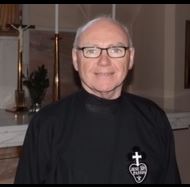As many of you will know, I like a good drama on television, and there are plenty of good dramas around at present. The only one I am watching in real time is the wonderful Shetland on a Wednesday night. There are two others, Angela Black and The Tower, that my brother records and, when I go up to make him a dinner the day after each of them, we sit and watch them together. This means that, if I know of other people who are watching them in real time, I need to swear them to silence, and tell me nothing of what went on. It reminds me of the days, pre social media, when I would enjoy watching football highlights without knowing the scores, and I would begin conversations with certain people by pleading with them, “don’t tell me the score!” Nowadays, it’s almost impossible to not find out the scores from someone before the highlights programme comes on. It makes it less exciting, but more relaxing.
This week, however, I was drawn to a very different TV programme. It was a documentary on BBC Scotland called the Hermit of Treig, about a man who has been living as a hermit for almost 40 years in a remote woodland north of Fort William. He lives in a log cabin, built by himself, with no electricity, no running water, and no phone. He survives by fishing, by growing a few vegetables, and by foraging for other food. If you love nature, he says, nature will love you back, and look after you. It all began when he was beaten up by a gang and thrown through a jeweller’s shop window in his twenties. He suffered brain injuries and wasn’t really expected to survive, but he did, and he decided that from then on, he would live on his own terms. He went walking in the Yukon but, when he returned, his parents had died, and so he went walking again. When he discovered this remote area above Loch Treig, which apparently means the Lonely Loch, because there is no public road leading into, or out of it, he stopped walking, grieved at last for his parents, and settled. Part of the story focussed on a stroke that put him in hospital for seven weeks, and he is being encouraged by people to leave his hermitage and return to “civilization”, where he can be better cared for, but there is very little chance that he is going to do that. He wrote to a priest who came and consecrated a patch of ground where he wants to be buried, and he believes strongly in life after death. He has, so far, made 80 gallons of wine, stored at his cabin, so that, when he dies, anyone who wants to, can come and raise a glass to him. I may just keep an eye out for him, and do that.
I was drawn to this documentary, I think, on two counts, firstly as an introvert, and secondly as a Passionist. Over the years, for various reasons, I have done a number of personality type indicators – the Enneagram and the Myers Briggs to name just two of them. Always, I have emerged as an almost “off the scale” introvert. Introverts draw energy from being on their own, and so solitude has always been something I have found attractive, fascinated by the lives and experiences of the early Christian desert fathers and mothers, and by hermits like Thomas Merton and Charles de Foucauld. The founder of the Passionists, St. Paul of the Cross, also a very strong introvert, felt passionately drawn to solitude, and for long periods lived the life of a hermit, but, when God led him in other ways, he took refuge in the hermitage of the heart, and inserted into the rule of his new order, that the members were to foster and develop a deep spirit of solitude so that they could reach closer union with God, and witness to His love. Could I have lived as a hermit? Certainly, my novitiate year with the Passionists, my 30-day silent retreat when training for Formation ministry, and my many other retreats and holidays, where I preferred to self-cater, go walking in solitude, and find renewed energy by being on my own in beautiful and remote places, have been among the best experiences of my life, but, living for 40 years in a remote forest above a lonely loch – that would probably have been too much – and there is a part of me that laments that.
As ever, protect yourself, your loved ones and others, and protect Christ in your lives.

 RSS Feed
RSS Feed
